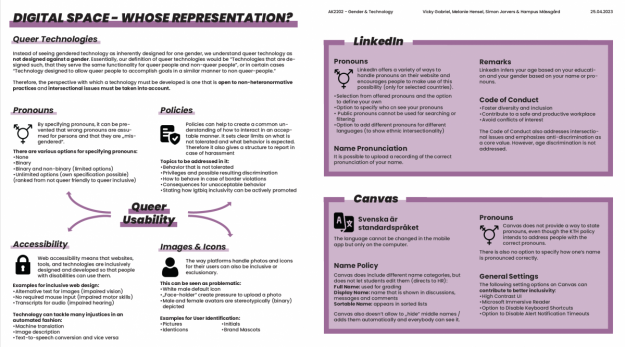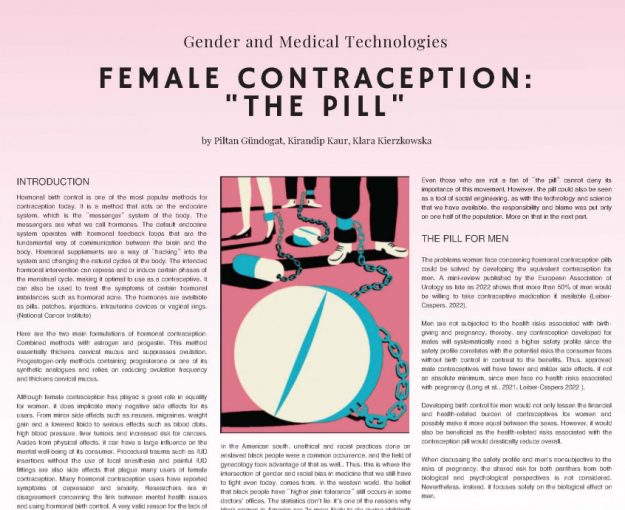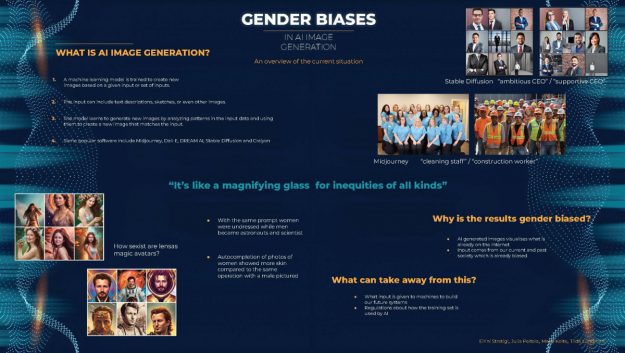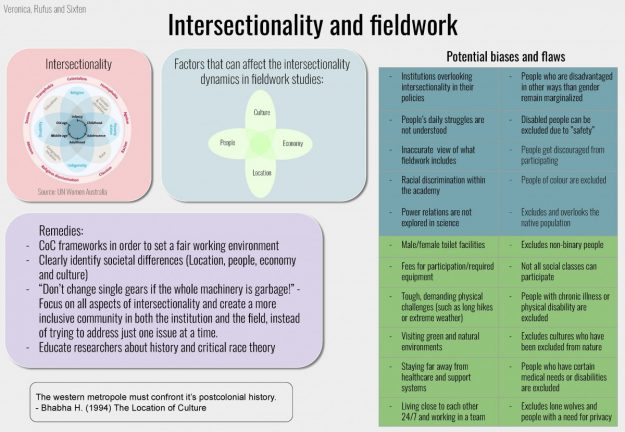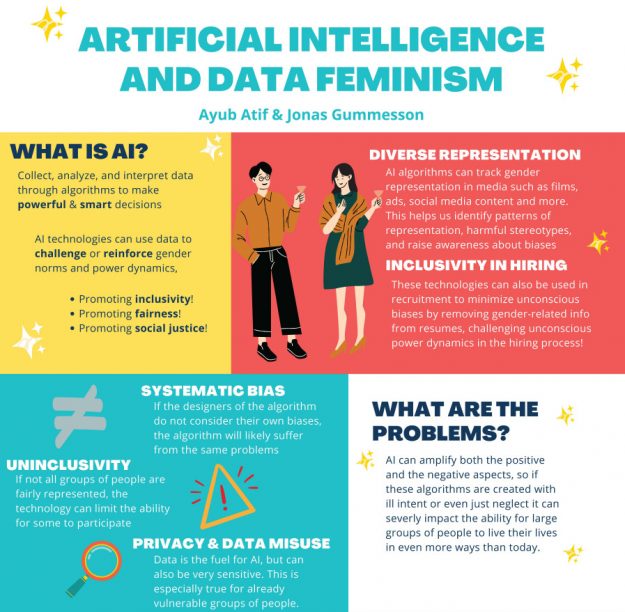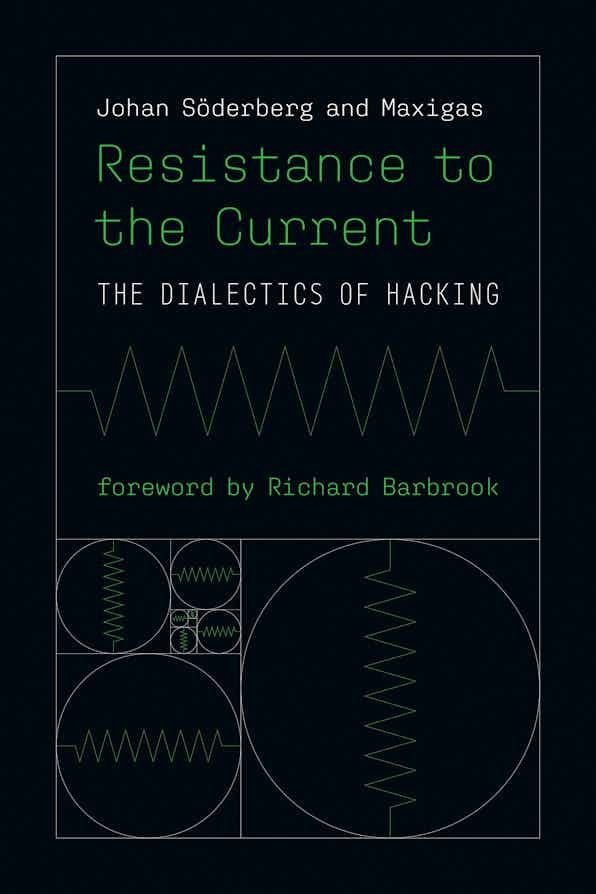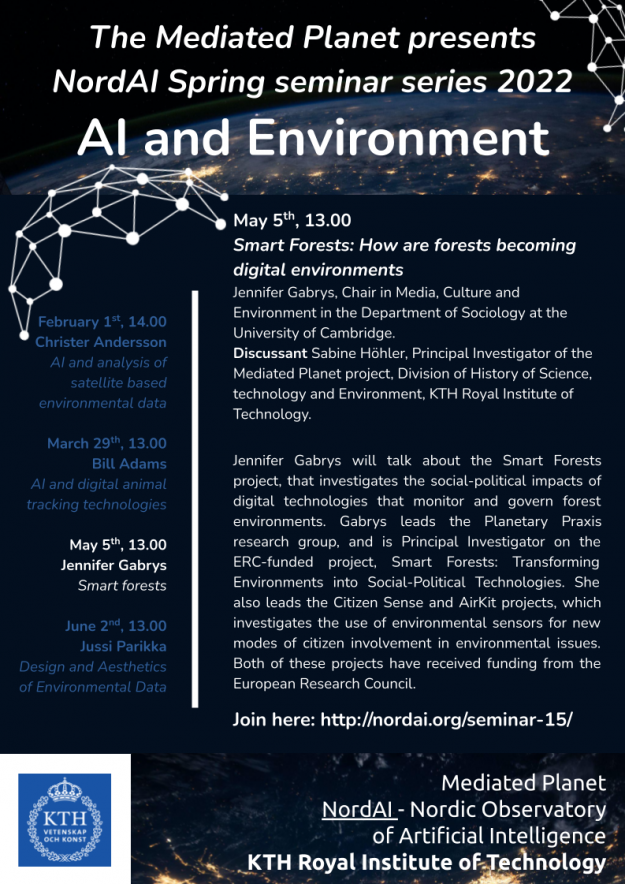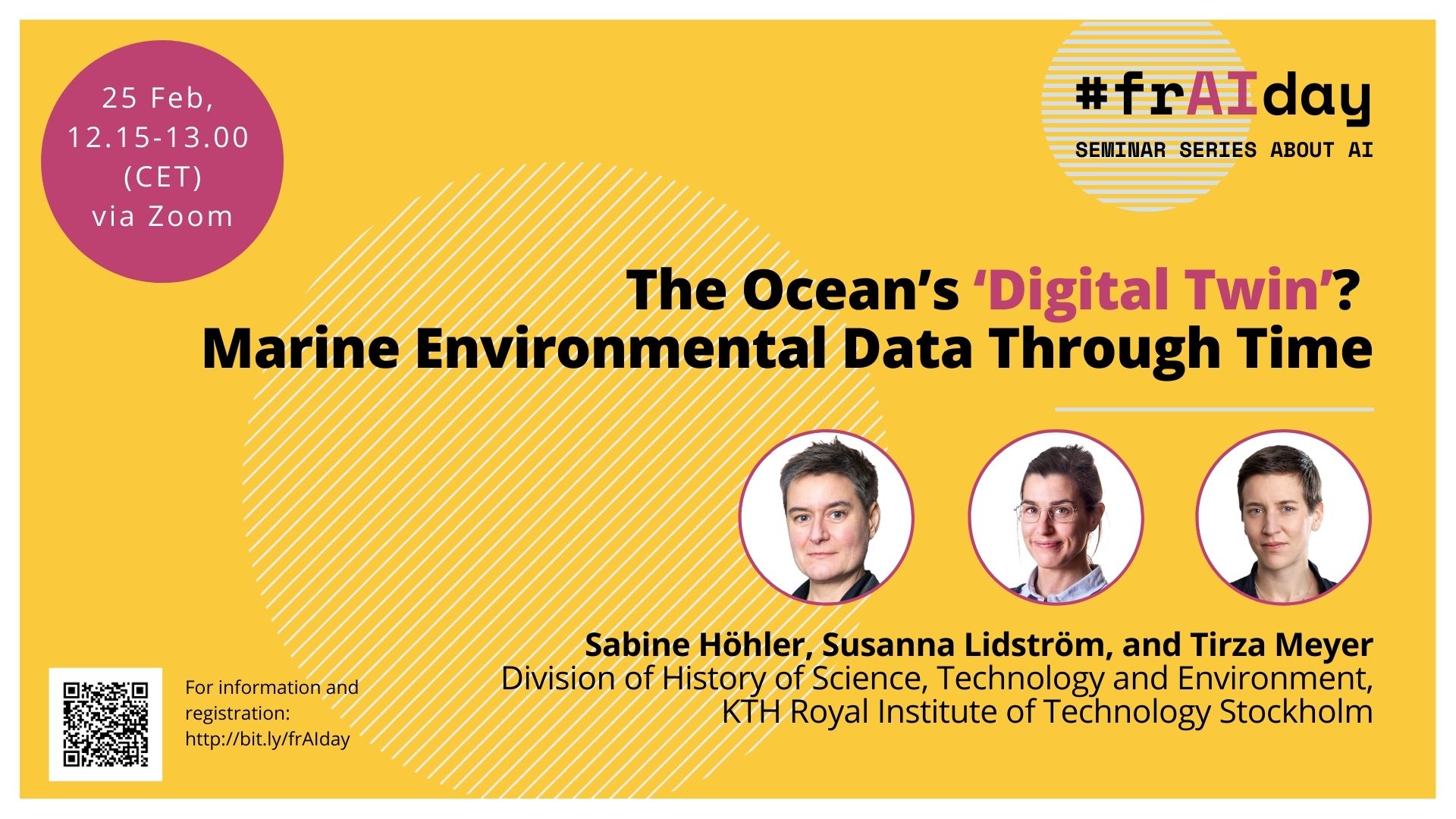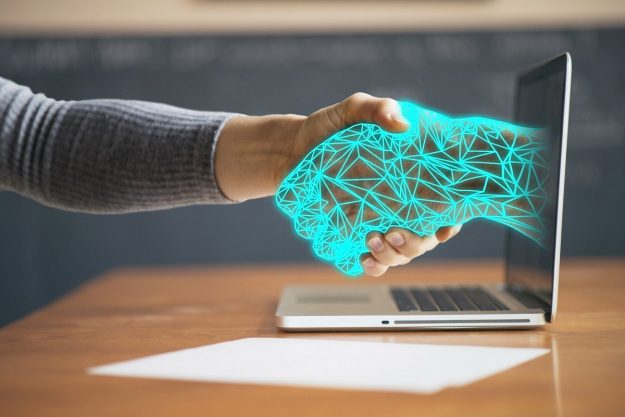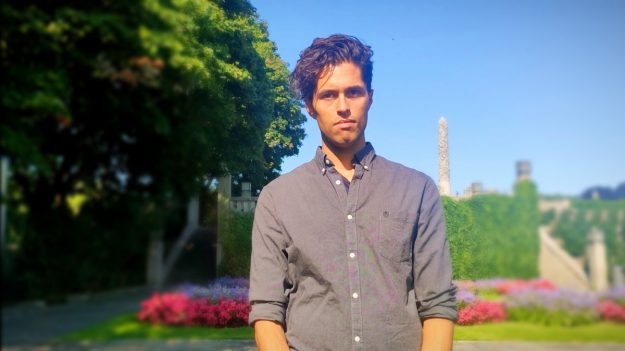Those timely and thought provoking topics were addressed by the students in this terms poster presentation session in the Gender and Technology course. Click on each picture below to get a full size readable PDF!
Check out the poster ‘Digital Space – Whose Representation’. The group analyzed queer technology in our society, specifically in online identities and used Canvas and Linkedin as examples. This poster has some real world impact because it addresses KTH’s learning platform. The students are invited to talk about their results concerning CANVAS in the ABE schools working group for gender equality, diversity and equal treatment issues (JML).
The poster ‘Gender and Medicine – Female Contraception’ addresses the injustice women have faced in the medical world. The students found that contraceptive research and testing has been dismissive of female health struggles, while male contraceptives are tested more rigorously and introduced with great caution.
‘AI Generated images’ addresses the biases that are embedded in algorithms used by AI technology. The students found that AI generated images of male and female avatars are sexist. They discovered that with the same prompt female avatars showed more skin while male avatars were depicted as astronauts or scientists.
Another student group worked with ‘Intersectionality and fieldwork’ asking how fieldwork could be adapted to become more inclusive. The students suggested some remedies, like using remote sensing technology for observation in the field and introducing code of conducts to improve the working environment during fieldwork.
‘Artificial intelligence and data feminism’ discusses how algorithm developers can become more aware of their own biases in order to counter-act discriminatory gender representation on the internet. They group found some possible solutions to counter-act invisible biases by increasing transparency and participation in developing AI algorithms.
I hope that those posters are food for thought, for not only the Gender & Technology class of 2023, but all students and employees at KTH who are interested in promoting and maintaining are more inclusive, open and nurturing learning environment for all of us.
A special thanks to the students of the Gender & Technology class of 2023.
Author Tirza Meyer, course responsible teacher for Gender & Technology, 2023.

